#freedom and responsibility
Text
The Philosophy of Authenticity
The concept of authenticity is deeply rooted in existentialist philosophy and has been a significant topic of discussion in various philosophical traditions. At its core, authenticity involves living a life that is true to one's self, values, and beliefs, rather than conforming to external pressures or societal expectations. This exploration delves into the philosophy of authenticity, its origins, key ideas, and its relevance in contemporary life.
Key Concepts in the Philosophy of Authenticity
Existentialism and Authenticity:
Origins: The notion of authenticity is most closely associated with existentialist philosophers such as Søren Kierkegaard, Martin Heidegger, and Jean-Paul Sartre.
Kierkegaard: Kierkegaard emphasized the importance of individual faith and subjective experience, urging individuals to make authentic choices that reflect their true selves.
Heidegger: In "Being and Time," Heidegger discusses authenticity as being true to one's own existence (Dasein) and not succumbing to the "they-self," which represents societal norms and expectations.
Sartre: Sartre's existentialism posits that existence precedes essence, meaning individuals must create their own essence through authentic choices, taking full responsibility for their actions.
Authenticity and Self-Discovery:
Concept: Authenticity involves a continuous process of self-discovery and self-creation.
Argument: To be authentic, one must engage in introspection and recognize their own desires, values, and beliefs, distinguishing them from those imposed by society.
Authenticity vs. Inauthenticity:
Concept: Inauthenticity arises when individuals conform to external pressures and live in a way that is not true to themselves.
Argument: Heidegger describes inauthenticity as living according to the "they-self," where individuals adopt the roles, behaviors, and beliefs dictated by others rather than their own.
Freedom and Responsibility:
Concept: Authenticity is closely linked to the existentialist notion of freedom and the responsibility that comes with it.
Argument: Sartre asserts that individuals are "condemned to be free," meaning they must take responsibility for their choices and the authenticity of their lives, without blaming external factors.
Authenticity in Modern Life:
Concept: The pursuit of authenticity remains relevant in the context of modernity, where societal norms, technological advancements, and consumer culture often challenge individual authenticity.
Argument: In contemporary society, maintaining authenticity involves resisting the pressures of social media, consumerism, and other external influences that promote a superficial or conformist lifestyle.
Theoretical Perspectives on Authenticity
Existentialist Perspective:
View: Existentialists emphasize the importance of individual choice and responsibility in achieving authenticity.
Argument: Authenticity is achieved through existential freedom, where individuals define their own essence and live according to their true selves.
Humanistic Psychology:
View: Humanistic psychologists like Carl Rogers and Abraham Maslow highlight authenticity as a crucial aspect of self-actualization and personal growth.
Argument: Authentic living is necessary for psychological well-being and fulfillment, as it allows individuals to realize their true potential.
Postmodern Critique:
View: Postmodern thinkers critique the concept of authenticity, questioning the possibility of a true, stable self in a world of constant change and fluid identities.
Argument: Authenticity may be seen as a constructed ideal rather than an attainable state, with the self being a product of various social, cultural, and historical influences.
Cultural and Social Perspectives:
View: Cultural and social theorists examine how authenticity is influenced by cultural norms and social contexts.
Argument: The quest for authenticity must consider the diverse ways in which different cultures and societies understand and value authentic living.
The philosophy of authenticity centers on the pursuit of a life that is true to one's self, free from the constraints of external pressures and societal expectations. Rooted in existentialist thought, it emphasizes self-discovery, individual freedom, and responsibility. While authenticity remains a crucial concept in contemporary life, it is also subject to critique and reinterpretation, reflecting the complexities of modern existence.
#philosophy#epistemology#knowledge#learning#education#chatgpt#psychology#Authenticity#Existentialism#Self-Discovery#Freedom and Responsibility#Inauthenticity#Humanistic Psychology#Postmodernism#Cultural Perspectives#Personal Growth#ontology
7 notes
·
View notes
Text
Politics in Canada 1: Jacques Boudreau on the Libertarian Party of Canada
Publisher: In-Sight Publishing
Publisher Founding: March 1, 2014
Web Domain: http://www.in-sightpublishing.com
Location: Fort Langley, Township of Langley, British Columbia, Canada
Journal: In-Sight: Independent Interview-Based Journal
Journal Founding: August 2, 2012
Frequency: Three (3) Times Per Year
Review Status: Non-Peer-Reviewed
Access: Electronic/Digital & Open…
#central planning failure#consistent libertarian philosophy#federal election campaigns#freedom and responsibility#government intervention issues#investment newsletter influence#Jacques Boudreau&039;s journey#Libertarian Party of Canada#non-aggression principle#trust and honesty in politics
0 notes
Text

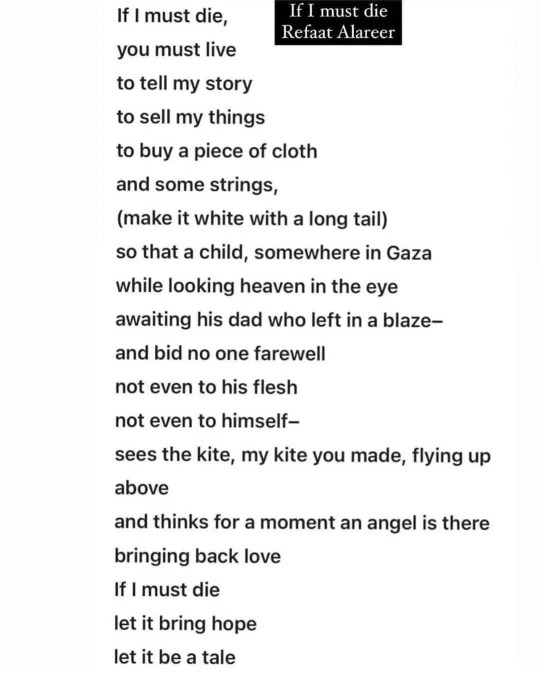

link
on twitter, a viral thread started where people around the world shared their translations of “If I must die”, the last work of Dr Refaat Alareer also known as "the voice of Gaza". A beloved poet, teacher and life-long activist for Palestine, he was recently assassinated along with members of his extended family by a targeted Israeli air strike. His loss leaves a hole in the heart of palestinians all over the world.
Below the cut, I’ll be posting the translations of his poem, with links to the original posts. Unfortunately, tumblr limits posts to a maximum of 30 images. I will update when I can.
Arabic (Refaat’s mother tongue)
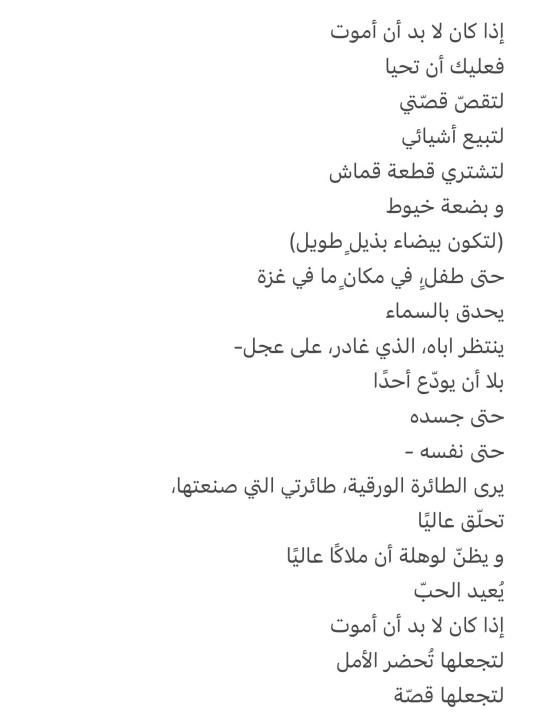
--
2. Spanish
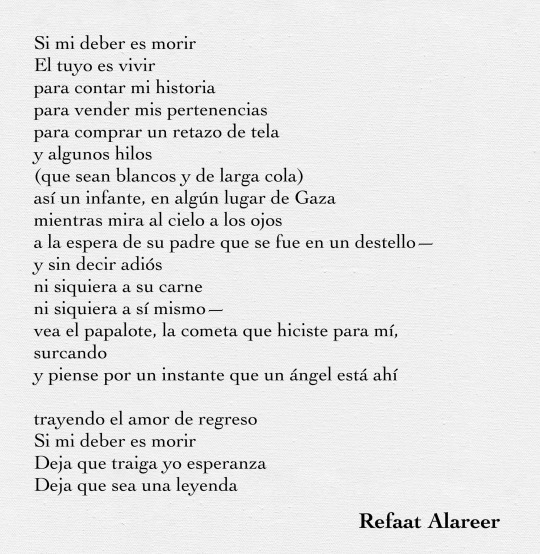
--
3. Irish

--
4. Dutch

--
5. Greek
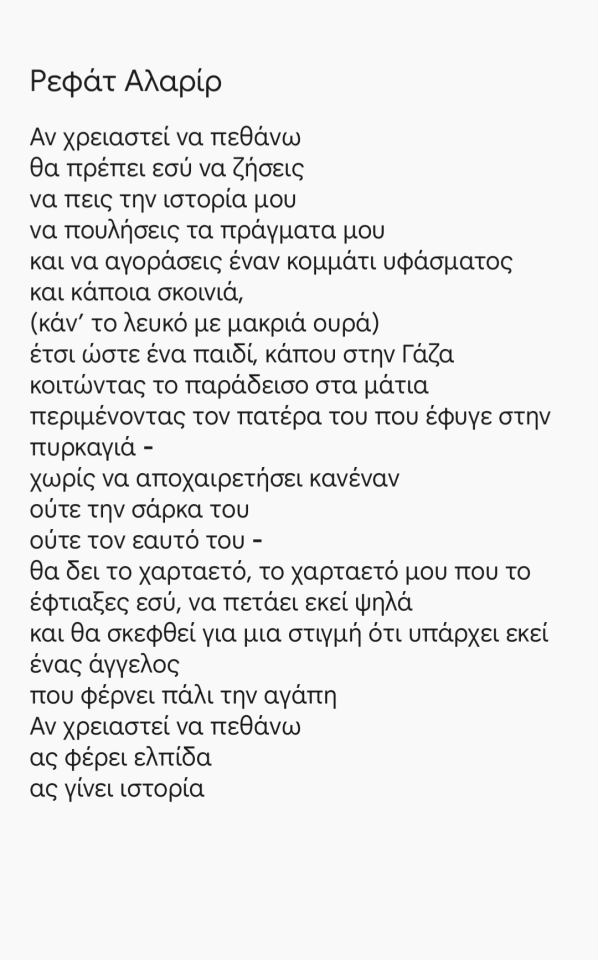
--
6. German

--
7. Vietnamese
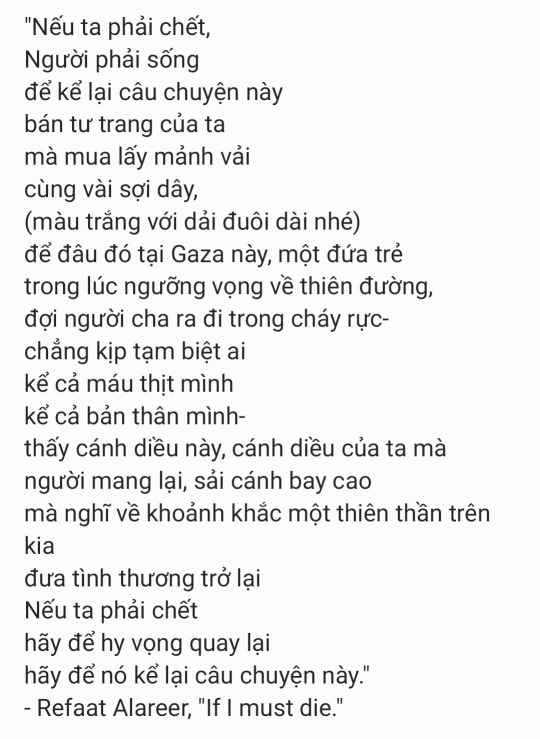
--
8. Tagalog
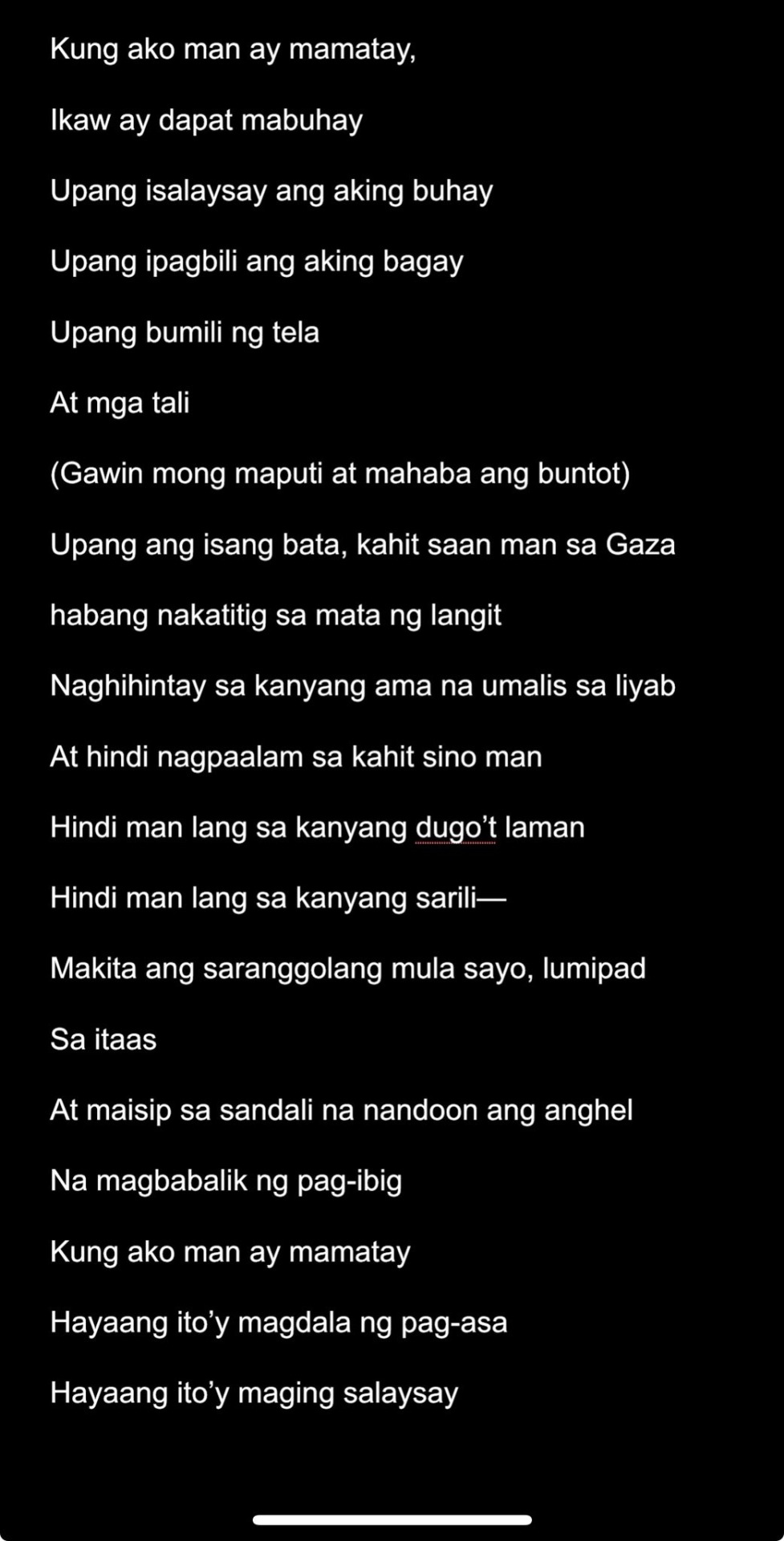
--
9. Serbian

--
10. Japanese
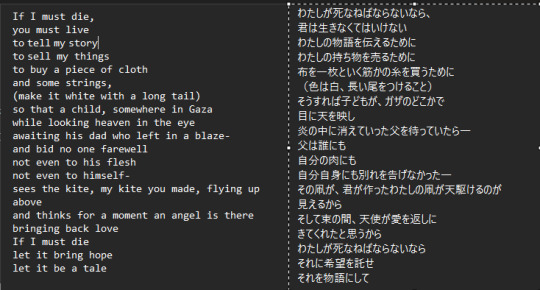
and the traditional japanese calligraphy version

--
11. Nepali

--
12. Tamil

--
13. Bosnian

--
14. Indonesian
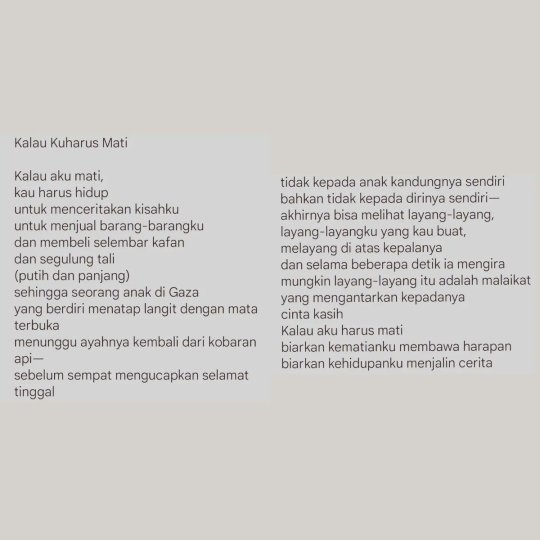
--
15. Romanian
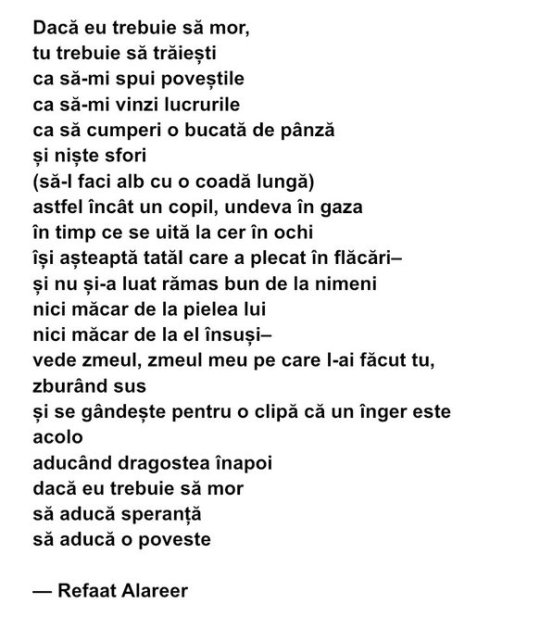
--
16. Italian
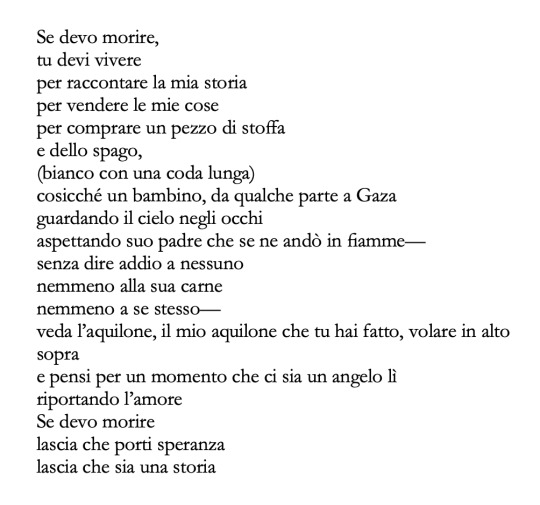
--
17. Albanian
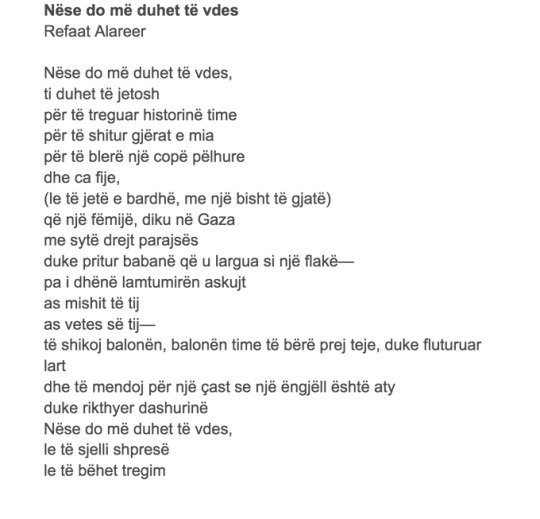
--
18. Urdu

--
19. Turkish

--
20. Polish

--
21. Norwegian
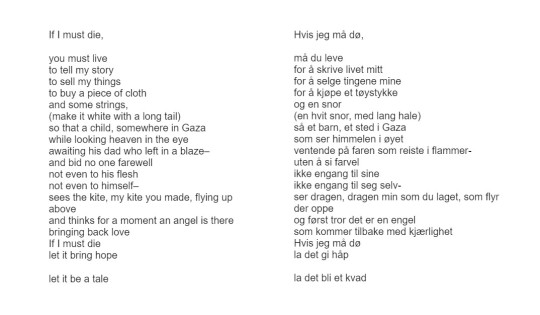
--
22. Galician

--
23. Swedish
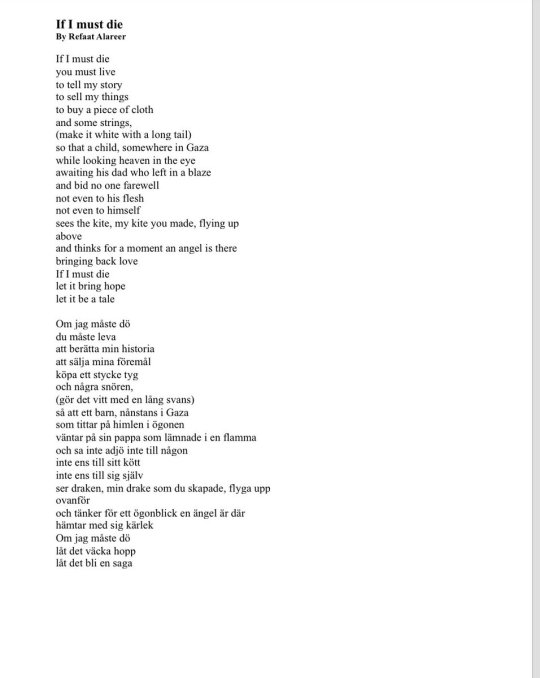
--
24. Jawi
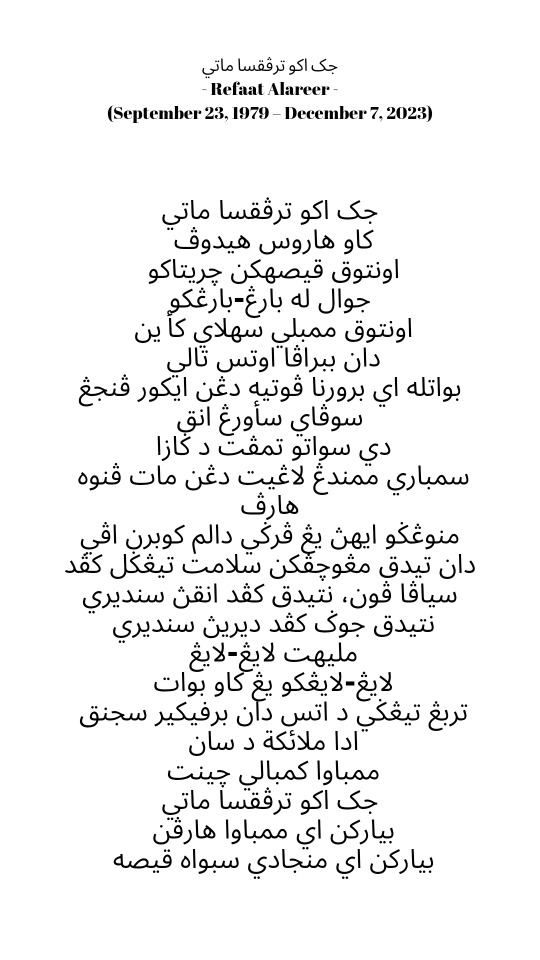
--
25. Bengali
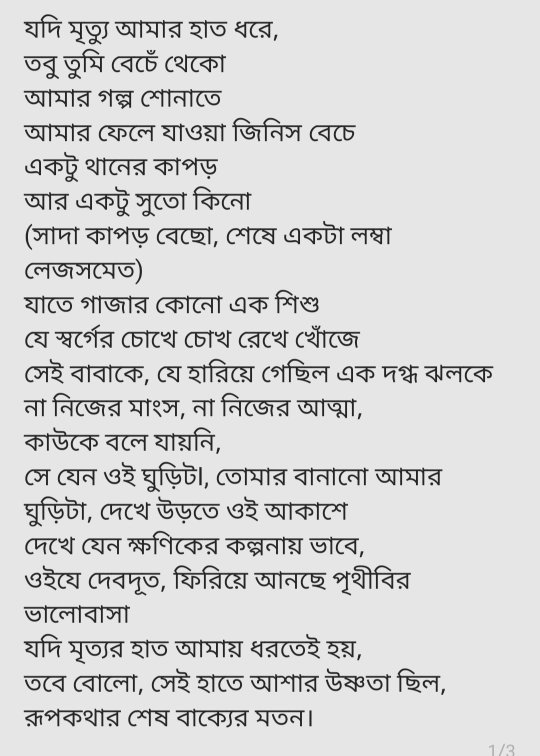
--
26. Russian
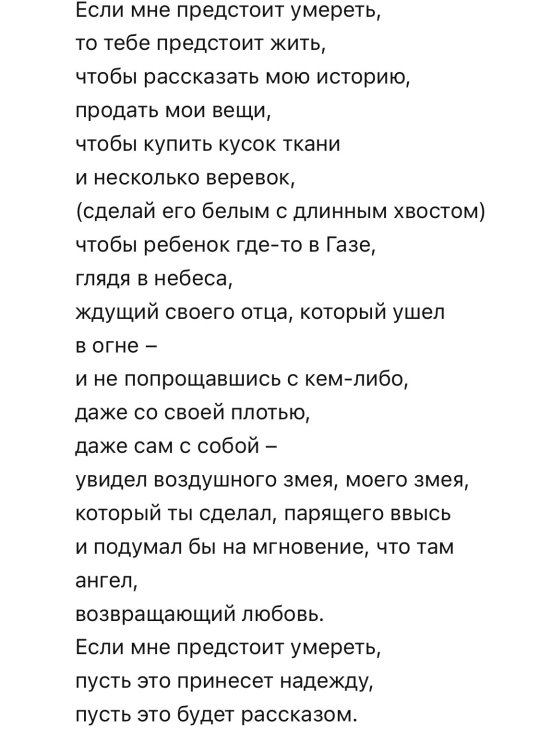
#probably one of the most beautiful threads to ever grace twitter's rotten husk of a platform#i really earnestly almost cried#when people say the world stands with palestine#they mean they speak with palestine as well#israel murders palestinian poets to silence their voice. their culture. their lifeblood#in response the world amplifies his voice tenfold#but what a loss#what an unforgivable loss#i hope it is some consolation to those who loved refaat that his words are now immortalised in languages all over the world#that he has united so many people in their pursuit of palestinian freedom#please please please feel free to add your own translations onto the post in reblogs#i just havent seen anything about this thread on tumblr yet#im just the messenger#palestine will be free#the words of refaat alareer will be immortalised#and his students will carry on his legacy#ah but it is almost 5am and i havent slept#when i wake up i will add more#free palestine#israel#refaat alareer#rest in peace
3K notes
·
View notes
Note
If you would be so inclined, I'd really love to see Damian with sheep or goats.
I have in my head a little AU where Jason takes Damian from the league, and they live nomadically for a while in Central Asia. But also, just any context of sheep or goats and Damian would make my day, but also no pressure, just if this happens to vibe with you, too. I absolutely love your art, even when it's fandoms I don't even know anything about.

1K notes
·
View notes
Text

I am permanently stepping back from all delusional people (mostly extended family) in my life. I don’t want to debate with them, my energy is better spent elsewhere.
From this point forward I will counter anyone who makes a statement about this traitor’s great character, especially when it’s based on staged events any fool could see are for photo ops only. No way to polish this turd, nope not having it. 💩💩💩💩
OMG, I’m really disappointed with some of the folks, I never wanted to believe they were this stupid. I refuse to pretend it’s ok. Not a matter of politics at this point, it’s a chasm between polar opposite personal values and worldviews.
Time to unleash and amplify the energy from the dawning of the age of Aquarius. It’s real, y’all.
💗💗💗💗
#wearethemajority#voter turnout#vote like your life depends on it#voter participation#american democracy#fight for democracy#womens rights#voter registration#harris walz 2024#love#empathy#joy#vision#positive change#drama free#no time for bullshit#speakup#i’m speaking my truth#take action#talk to people#please vote#voting#get out the vote#check your registration#us presidential election#fight for freedom#take responsibility#do what you can#amplify#age of aquarius
203 notes
·
View notes
Text
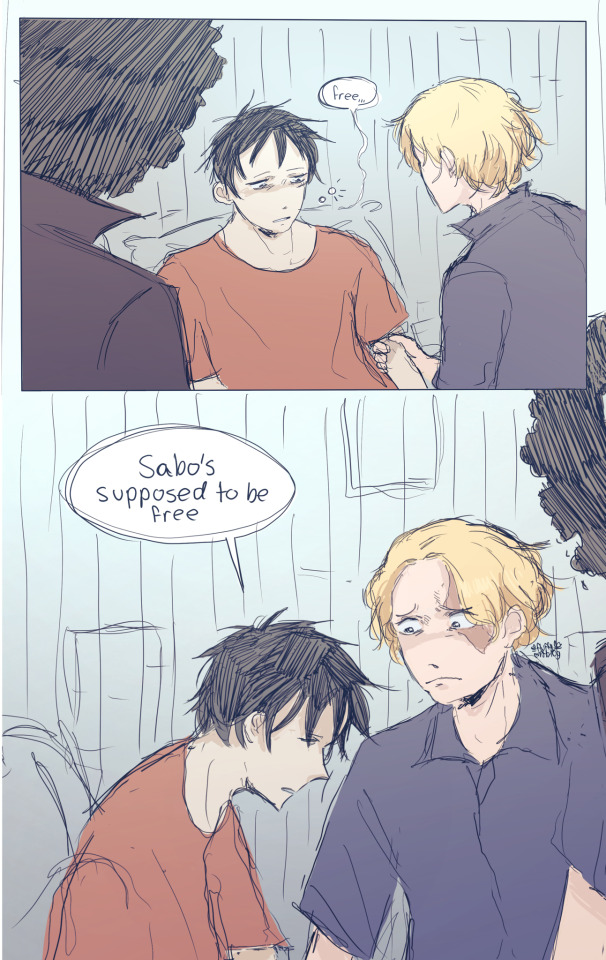
“Ace had his own adventures, and I have mine,” Luffy mumbles, drifting off again. “You have yours, too. I don’t want you to miss them. I don’t want you to miss anybody. Or to… be here when you’d rather be…”
“Luffy—”
“Free,” Luffy manages. “Sabo’s supposed to be free.”
@taizi put your faith in what you most believe in
#one piece#op fanart#sabo#monkey d. luffy#op brook#(kinda)#man im just reccing fanfics left and right recently#and by that i mean one in the post before this and one in the post now#im being 100 percent serious when i say that whenever i read this fic i start either tearing up or full on sobbing#luffy was so miserable when he found out how much sabo hated being confined as a noble#sabo hated that life so much that he tried to escape#sabo’s meant to be free…#luffy would absolutely hate if he was ever responsible for taking away that freedom#but luffy… you ARE freedom…#how could he ever be trapped when with you?#(me: is starting to tear up again)
2K notes
·
View notes
Text
honestly i'm kind of interested in the idea of laios in an arranged marriage. because obviously straight-up inherited monarchies are ...bad, to say the least! but it's what the characters are familiar with (even laios' father's extremely local, extremely minor leadership role is inherited, presumably through the male line). and it isn't just about what they think the best way to run melini is; in terms of ensuring that the other longed-lived nations respect melini's continued sovereignty, having it passed down in a manner that's close enough to their own ways for them to understand it and respect it is important. And it seems like most of the other nations have leadership through inheritance - thought that isn't confirmed for certain except with the elves.
Also, a marriage carries the potential to establish foreign allies - something melini is certainly lacking. A marriage could come with resources they'll badly need, treaties of mutual defence, money, legitimacy and political capital... not that these things can't be worked around, but if laios isn't strongly opposed, there are a lot of advantages! and i don't think he would be, because that's the framework for marriage (conferring practical advantages, building intracommunity relationships and providing a partner to do important work that he can't do) that he had grown up with. he isn't exactly a romantic and I doubt he's holding out for any sort of relationship of that nature.
Like, I don't think it's impossible that they would go with this path, because it's the most obvious and it carries a lot of advantages and it's what almost all the decision-making characters would consider normal and not objectionable. and it could be so interesting.
I think Laios would have major hangups if expected (i.e., by Marcille) to establish a genuine, romantic interest in a woman. Whether because of his sexual or romantic orientation, or just his own deep-seated trauma about rejection and being inherently disgusting and scary. And I think he'd hate the idea of having kids, too, and be very frightened of being like his father. But I don't think he'd refuse on that basis; he could cope with a marriage contract, with clearly laid-out expectations and responsibilities. And when it came to having a kid, I think he'd be reluctant to express that he doesn't want to do it, because he isn't naive and he understood when he agreed to be king it would carry responsibilities like this. It's clear from his nightmare that he already felt pressure from his parents to have children, probably magnified by the fact his father has got a position, responsibilities and wealth to pass on. Obviously he isn't a perfect martyr, so he might struggle when it comes to actually going through with it - but I don't think he'd actually, outright refuse. I think he might do it even though he doesn't want to, and I think that could be really messy in a way that appeals to me.
I don't know, there's something about negotiating these kinds of complicated situations that's interesting to me. and i love a platonic marriage. If they find a woman who has an interest in education, for example, and can work with marcille on setting up schools and universities. she'd ideally be politically savvy enough to be an able partner to laios: even though kabru can and would continue to do a lot of that, there are different spheres that a queen and a prime minister can work within!
how would their relationship work? maybe she finds laios' perspective on the world, and his frankness, unexpectedly liberating after an extremely controlled, cloistered upbringing. maybe she had a rebellious phase, has magic, or something else which makes her a relatively unpopular candidate for marriage - even as melini grows in power, i doubt that they'd be getting offers for the cream of the crop in terms of perceived value on the marriage market, because laios' relationship is a bit too ambivalent/monstrous for that, and melini too new. maybe she's a widow! an older woman, wouldn't that be cool - though they'd want her young enough that she could definitely still have kids.
certainly i think he'd be happy for her to pursue other relationships, though ideally in a manner that couldn't produce illegitimate kids. with other relationships in play, that's even more interesting. like, both kabru and toshiro have complicated emotions relating to infidelity. i think kabru would actually find it quite cathartic to be in the kind of high-status environment that rejected his mother for perceived infidelity, pursuing an affair that all parties consent to, though he'd likely be incredibly aware of the public image - since "image" is what he was rejected for. toshiro... i just really really love the way he'd feel about being the "other woman" in laios' marriage, considering his feelings about his father and maizuru. especially given how much closer he is to maizuru than his mother, being in her position...! his emotions would be so complex, it's incredibly tasty. i bet he'd make a bunch of assumptions about how laios' wife feels about it and be totally wrong, and that's so interesting. also, i think laios' wife should fuck marcille (she and falin have an open relationship).
#og post#dungeon meshi manga spoilers#dunmeshi#laios touden#inheritance! in the cultural framework these characters are working with#it really matters#this is why in my unwritten postcanon story i have the touden parents have another kid. can you imagine laios' feelings on that! god.#negotiating some kind of freedom within the restrictions responsibilities and expectations of this position#is part of what is so interesting to me abt postcanon dm#and it's extra interesting to me if there are a lot of restrictions and responsibilities laios can't or won't escape and has to work around#and marriage and kids are a big one there... exactly BECAUSE laios is so viscerally uncomf with the expectations of heterosexual masculinit#so easy to read as transfem nonbinary gay etc#i want to see him treating a marriage contract like he does the problem of the demon. if that makes any sense.#putting that brilliant autistic brain to work to see a way to do this that isn't like your father did
184 notes
·
View notes
Text
I think Aventio and Screwtio shippers shouldn't fight. After all, Ratio has two hands!
That's right. Two hands.
One for his chalk.
One for his codex.
Both of which he's holding in an embarrassed death grip as they chat away with each other about him.
#I'm on to something here#screwtio#aventio#hsr aventurine#veritas ratio#dr ratio#screwllum#hsr#honkai star rail#now as a disclaimer I'm not personally a huge fan of aventio#exclusively because i think they are so SO much funnier as gay friends#but something about combining the two clicks really well to me#Aventurine and Screwllum would be pretty fantastic metamours i think#they'd have a lot of fun playing off each other#but also Screwllum being there to dispute Aventurine's doubts over whether or not Ratio cares as a verified outside perspective#listing off shit like upticks in heartrate pupil dialation etc on top of being like#he talks about you fondly he knows your favorite things i can personally attest that you are very evidently important to him#stuff Aventurine can't easily write off when coming from not only an outside perspective but also a literal Genius#and on the flip side Aventurine would finally have someone other than Ratio and the Trailblazer he can talk to with relative ease#someone who has also been through a frankly incredibly traumatizing historical event#someone who is also under constant pressure to perform a certain way#someone who has gained wealth and power at the cost of carrying responsibilities on his shoulders and never being truly free#appearing free to anyone who glances but neither of them really are#Screwllum seemingly able to freely pursue whatever research he wants but ultimately permanently shackled with his titles#and public pressure to be the perfect poised representative for all of inorganic kind#forever treading the line of being both a desirable ally and a sufficient threat that you wouldn't want to cross him#and similarly Aventurine stuck in his cycle that he feels only death can free him from of gambling with his life on the line#because the IPC basically owns him#because let's be honest Jade's offer was just a lifetime labor contract he couldn't refuse#granted the illusion of freedom through gaining money and power but never truly free
126 notes
·
View notes
Text

I know Lezah is dead. I KNOW. But her last name is Sllew and she SLAYS. I want to give her apple juice and trail mix with extra raisins in it as a snack break from breaking convention regulations
#fairly oddparents#fop a new wish#lezah sllew#hazel wells#artists on tumblr#SHE LIKES TRAIL MIX WITH EXTRA RAISINS#AND PRANKS#AND IS A FASHIONISTA#SHE PROBABLY USES A FUCKTON OF HAIR PRDUCTS TO GET IT TO LOOK LIKE THAT#BECAUSE SHE CARES MORE ABOUT HOW SHE LOOKS THAN ABOUT BEING AUTHENTIC#SHE WEARS PLATFORM HEELS TO LOOK TALLER BECAUSE LIKE HAZEL SHE WANTS TO BE SEEN AS MATURE#BUT UNLIKE HAZEL ASSOCIATES MATURITY WITH FREEDOM INSTEAD OF RESPONSIBILITY#and she’s dead I know she’s dead but I think she genuinely deserves to exist!!#also I hope Hazel keeps the butterfly wings cuz they look good on her#I want Lezah and Irep to interact and I want Irep to act like her embarrassing uncle who treats her like the little kid she is#she would lie about her age to get into a scary movie#actually no I bet she hates scary movies. I bet she really likes rom coms#and tear jerkers#I bet she hates French fries with a passion#she’s like me when I was eleven#looney mooney rants#mooneyart#looney mooney art#fanart
135 notes
·
View notes
Quote
I find myself suddenly in the world and I recognize that I have one right alone: That of demanding human behavior from the other. One duty alone: That of not renouncing my freedom through my choices.
Frantz Fanon, Black Skin, White Masks
#philosophy#quotes#Frantz Fanon#Black Skin White Masks#freedom#liberty#choices#obligation#responsibility#rights#humanity
110 notes
·
View notes
Text
Most people do not really want freedom, because freedom involves responsibility, and most people are frightened of responsibility.
Sigmund Freud
#sigmund freud#freud#quotes#philosophy#wisdom#life#literature#writer#books#psychology#write#art#artist#idea#ideas#freedom#responsibility#psychoanalysis
300 notes
·
View notes
Text
The Philosophy of Good and Bad Faith
The philosophy of good faith and bad faith primarily explores concepts related to authenticity, self-deception, and the nature of human existence, especially within the framework of existentialism. These ideas are most famously articulated by Jean-Paul Sartre, a leading figure in existentialist philosophy. The notions of good faith (bonne foi) and bad faith (mauvaise foi) deal with how individuals confront their freedom, responsibilities, and the choices they make in defining their existence.
Key Themes in the Philosophy of Good Faith and Bad Faith:
Existentialism and Human Freedom:
Freedom and Responsibility: Existentialist philosophy, particularly as developed by Sartre, emphasizes that human beings are radically free. This freedom is not just the ability to make choices but a fundamental condition of human existence. However, with this freedom comes the burden of responsibility for one’s actions and the meaning one creates in life.
Existence Precedes Essence: Sartre’s famous dictum, "existence precedes essence," suggests that humans are not born with a predetermined nature or purpose. Instead, individuals must create their own essence through their actions and choices. This process is central to the ideas of good faith and bad faith.
Bad Faith (Mauvaise Foi):
Self-Deception: Bad faith involves deceiving oneself to avoid the discomfort of facing one’s freedom and the responsibility that comes with it. It is a form of self-deception where individuals lie to themselves about the nature of their choices or circumstances to escape the anxiety associated with their freedom.
Examples of Bad Faith: Sartre provides examples of bad faith, such as a waiter who over-identifies with his role, acting as if he is merely a waiter and nothing more, or a person who claims they had no choice but to act in a certain way, thereby denying their freedom. In both cases, the individual denies their full humanity by reducing themselves to fixed roles or circumstances.
Denial of Freedom: In bad faith, individuals deny their freedom by attributing their actions to external forces, such as societal roles, expectations, or determinism. They avoid acknowledging that they always have a choice, even in the most constrained situations.
Good Faith (Bonne Foi):
Authenticity: In contrast to bad faith, good faith involves living authentically, fully acknowledging and embracing one’s freedom and the responsibility that comes with it. A person in good faith recognizes that they are the source of their actions and the creator of their own values and meaning.
Embracing Responsibility: Living in good faith requires accepting the anxiety and uncertainty that come with freedom. It involves making choices based on genuine reflection and accepting the consequences of those choices without resorting to excuses or self-deception.
Authentic Existence: Good faith aligns with the existentialist ideal of living an authentic life. This means being true to oneself, making decisions based on one’s own values rather than conforming to external pressures or societal norms.
The Role of Others:
The Look (Le Regard): Sartre also explores how the presence of others affects our experience of good faith and bad faith. Through the concept of "the look," Sartre describes how being seen by others can lead to a sense of objectification, where one becomes aware of oneself as an object in another’s perception. This can lead to bad faith if one starts to see oneself solely through the eyes of others, denying one’s own freedom and subjectivity.
Interpersonal Relationships: Relationships with others are often a battleground for authenticity. In good faith, individuals engage with others without trying to dominate or submit, recognizing both their own and the other’s freedom. In bad faith, relationships are marked by attempts to control or escape the freedom of the self and the other.
Anxiety (Angoisse) and Bad Faith:
Existential Anxiety: The recognition of one’s absolute freedom and the weight of responsibility can lead to existential anxiety. This anxiety arises from the realization that there is no predetermined path or external authority to guide one’s choices—each individual must create their own meaning.
Avoidance of Anxiety: Bad faith often serves as a coping mechanism to avoid this anxiety. By convincing oneself that they are bound by external factors, individuals can temporarily escape the daunting reality of their freedom. However, this comes at the cost of living inauthentically.
Ethical Implications:
Ethics of Authenticity: The philosophy of good faith and bad faith has significant ethical implications. It suggests that living ethically involves being true to oneself, acknowledging one’s freedom, and taking responsibility for one’s actions. This form of authenticity is seen as a moral ideal in existentialist thought.
Critique of Social Roles: Sartre’s critique of bad faith extends to societal roles and norms, which can be sources of inauthenticity. He argues that when people blindly conform to societal expectations, they deny their freedom and fall into bad faith. Ethical living requires questioning these roles and choosing one’s path consciously.
Challenges and Criticisms:
Ambiguity of Authenticity: One challenge in the philosophy of good faith is defining what it means to live authentically. Since existentialism emphasizes individual freedom, there is no universal standard for authenticity, which can make the concept seem vague or subjective.
Relativism: Critics argue that the emphasis on personal freedom and authenticity can lead to moral relativism, where any choice is justified as long as it is made authentically. However, existentialists like Sartre contend that authenticity requires more than just arbitrary choice—it demands a deep engagement with one’s freedom and responsibility.
The philosophy of good faith and bad faith provides a powerful framework for understanding human freedom, responsibility, and the quest for an authentic life. It challenges individuals to confront their freedom honestly, without resorting to self-deception or excuses, and to live in a way that is true to their own values and potential. By exploring the dynamics of self-deception and authenticity, this philosophy offers profound insights into the nature of human existence and the ethical challenges that come with it.
#philosophy#epistemology#knowledge#learning#education#chatgpt#ontology#metaphysics#psychology#Philosophy of Good Faith#Philosophy of Bad Faith#Existentialism#Jean-Paul Sartre#Authenticity#Self-Deception#Freedom and Responsibility#Existential Anxiety#The Look (Le Regard)#Ethics of Authenticity#Human Freedom#Existence Precedes Essence#Moral Relativism#Interpersonal Relationships#Social Roles and Norms#good faith#bad faith#ethics
0 notes
Text
begging the Netflix ATLA crew to stop giving interviews, every day there is a new article inflaming the Internet and you can literally see the Sims relationship decline animation happening in real time
#like what do you MEAN aang is single-minded in his quest and has no problems accepting responsibility#at least sokka's sexism is a 4 episode thing but this kid goes through balancing freedom and duty for 3 entire seasons#atla liveblog
164 notes
·
View notes
Text
all im saying is ive never seen someone criticize those marylily or dorlily fanart/fics where they’re harrys mothers and theres no james in sight
#yall will force lily to be a mother bc of ’canon’ but yall dont care about james //responsibility// being a father ??#yall are not the feminists you think you are#the absolute stupidest reason to be against jegulus fr#’how can you take harry from lily?’ ok and what about all the wlw lily ships where they raise harry ?#where are you THEN ??? asking how they can take harry from james ????? WHERE ARE YOU THEN#a woman will always be nothing but a mother#even before she even is one#*lia voice* ever since she’s been a daughter she’s been a prisoner#why is harry ONLY lilys goddamn responsibility#free lily from being a young mother fr..#a dad is a babysitter and a mother has to lay down her life and freedom for the child#which is why yall dont actually care#you just want to be anti jegulus and loud about it#i dont even ship jegulus#ahfhsjsj#maybe reevaluate your stance on the heteronormative nuclear family dynamics and how they’re anti women#bc yall are just pushing the heteronormative agenda with this absolutely lacking take#ok anyway#interesting hill to die on from a girl who hates mlm ships having kids and doesnt ship jegulus#but thats a whole other thing#so!
306 notes
·
View notes
Note
If ya in the mood: can you do Kon, kid jon and kid Chris please or whenever you can?

Kent household unearthed camcorder footage
#superfam#jon kent#conner kent#chris kent#krypto the superdog#prompt response#<3#imagine how hard it would be to get a kryptonian child to not do dangerous shit#babysitter Kon#complete disregard for canon here but fanon is freedom#and if we follow that thread imagine Clark finding this footage after Chris or Kon is gone#kon el
438 notes
·
View notes
Text

The freebird knows 🇺🇸 🇺🇲
386 notes
·
View notes